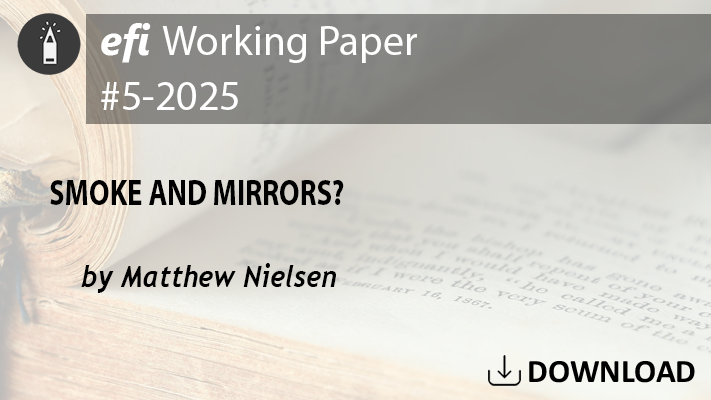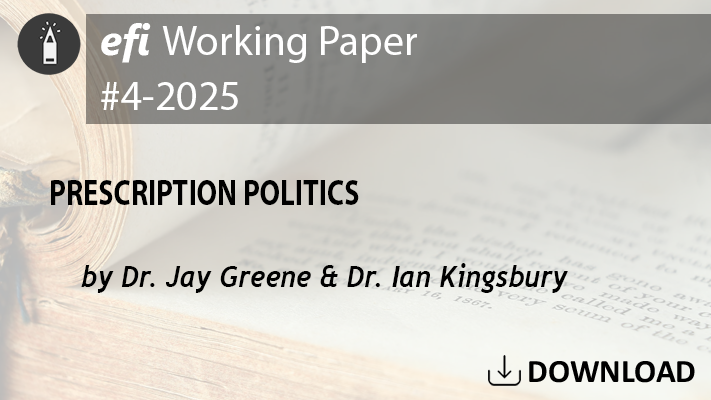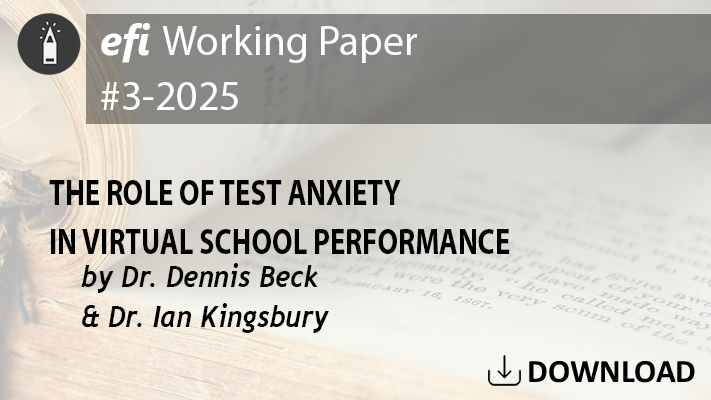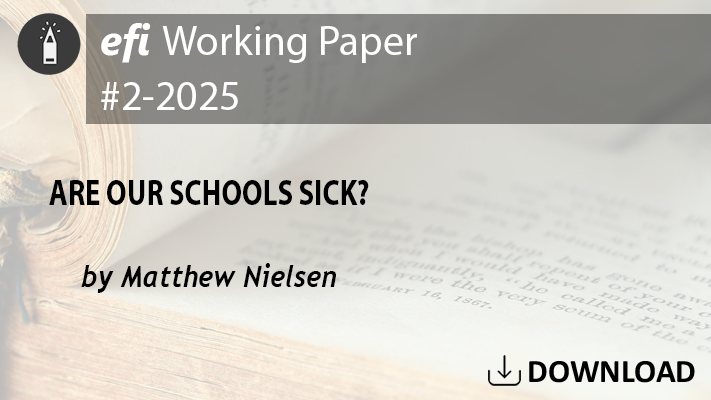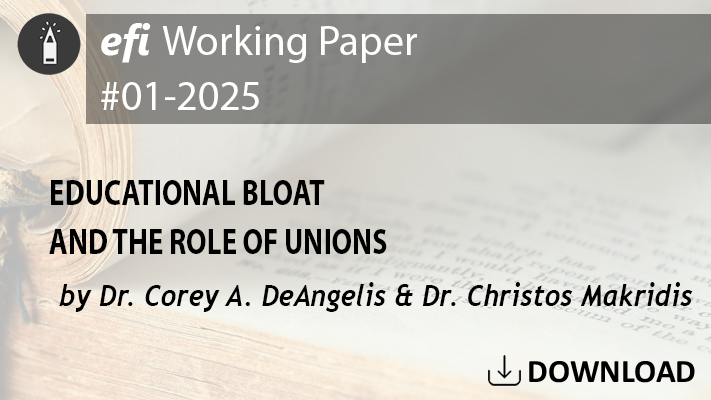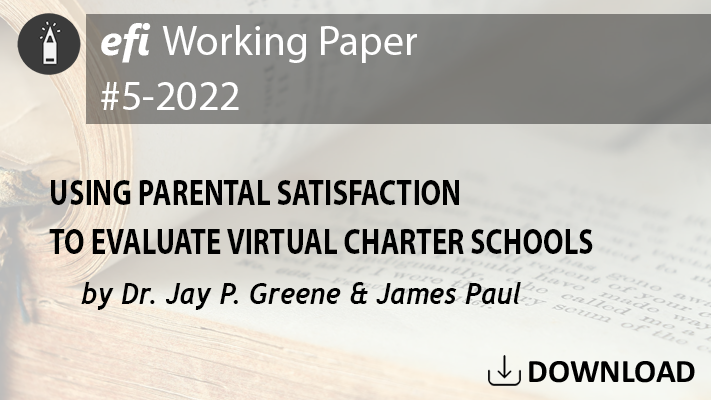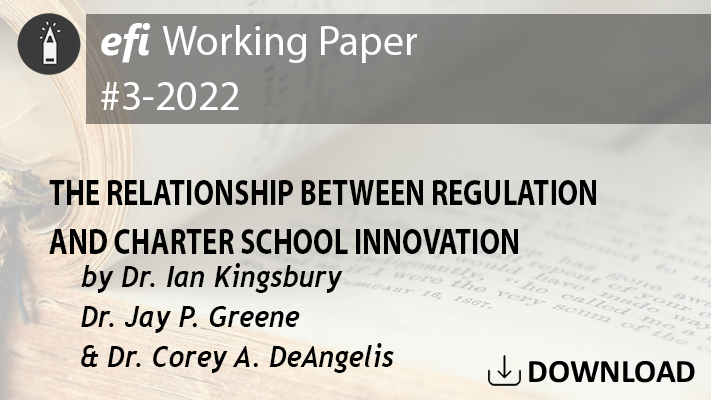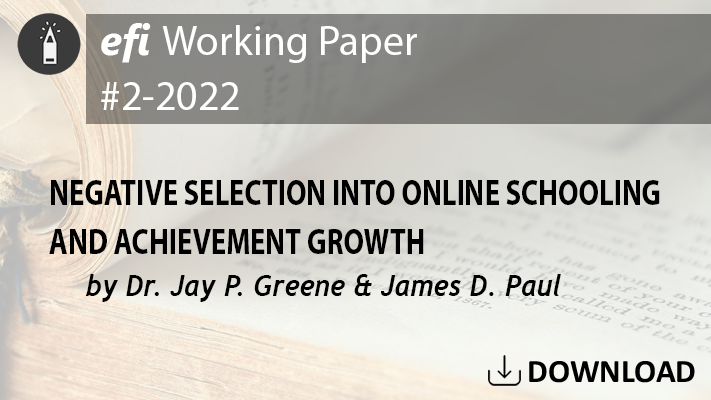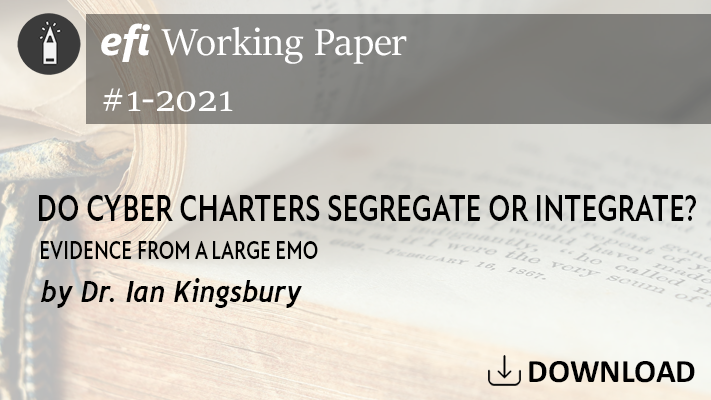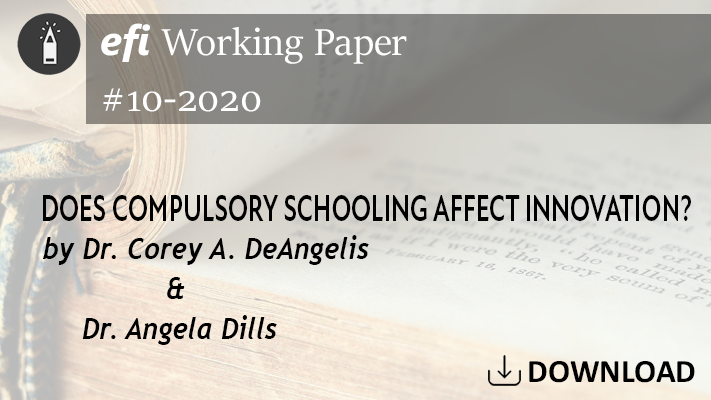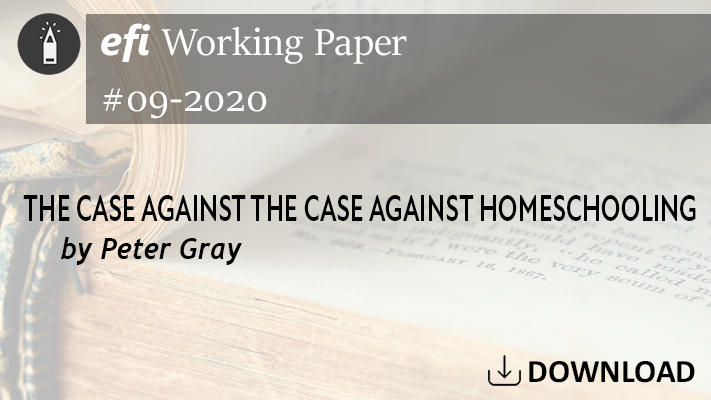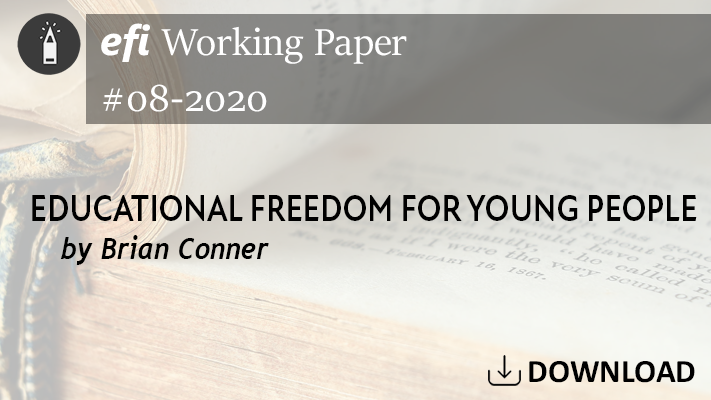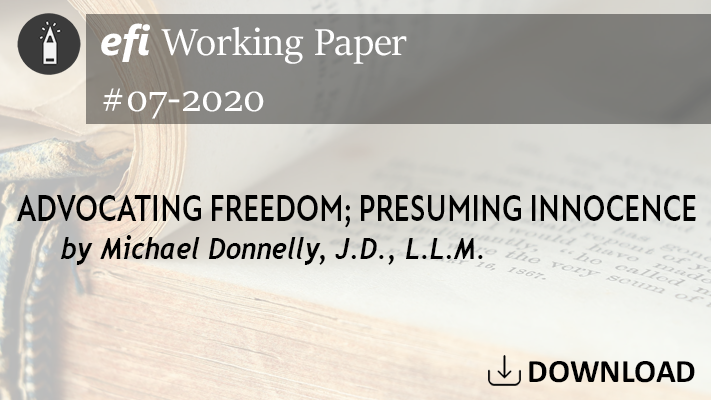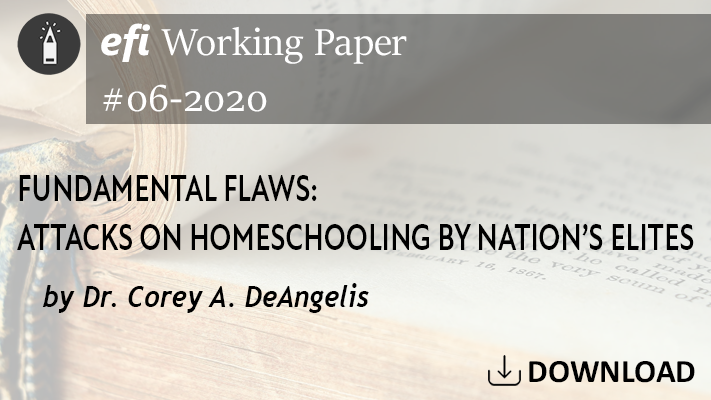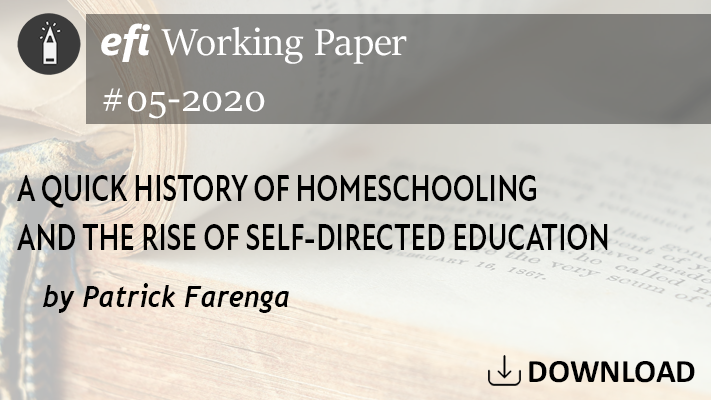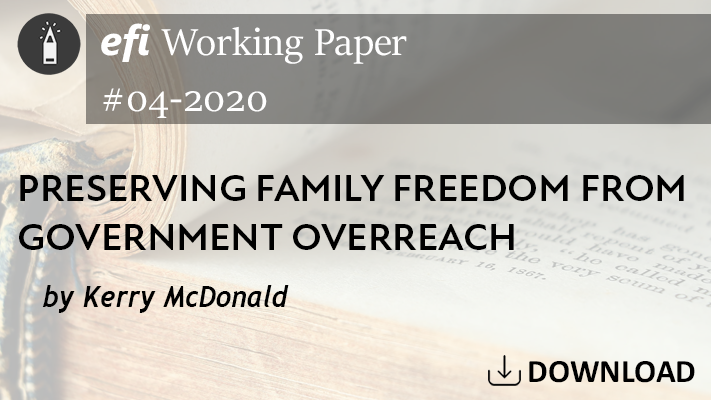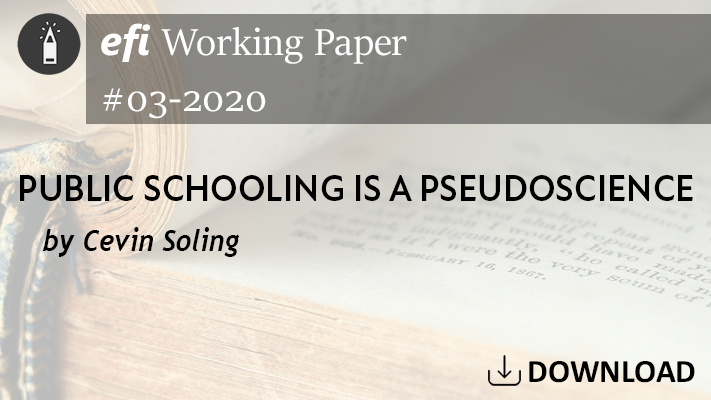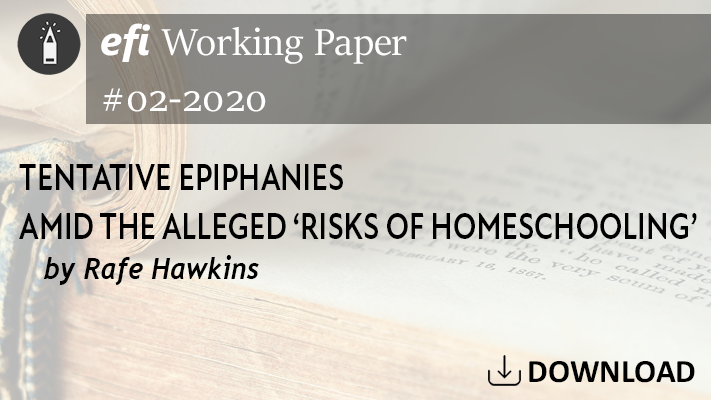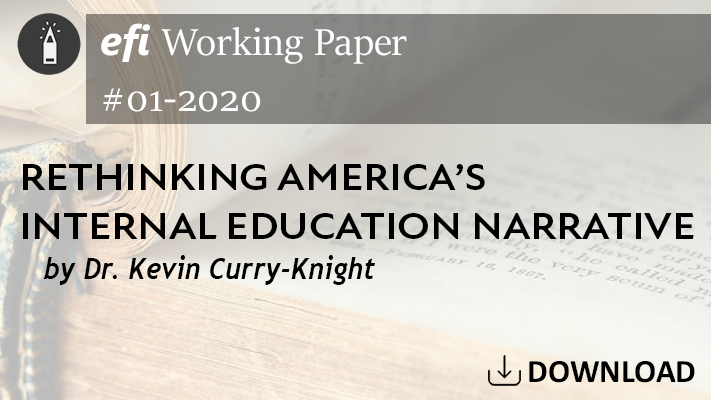Working Papers
Matthew Nielsen reviews public statements by the leaders of the National Education Association (NEA) and the American Federation of Teachers (AFT) to determine how often they speak about academic achievement versus controversial social issues.
Dr. Jay Greene and Dr. Ian Kingsbury show that members of “The Squad” receive an extraordinary amount of their campaign donations from foreign-trained doctors.
Dr. Dennis Beck and Dr. Ian Kingsbury explore the impacts of testing context and implications for equity among virtual school students and how this affects overall school performance.
America’s school districts have been given billions of dollars from the federal government in the wake of the Covid pandemic. Poor spending habits pre-Covid will result in a fiscal cliff in coming months and years. Matthew Nielsen assesses the health of school districts generally in this important report.
Dr. Corey A. DeAngelis and Dr. Christos Makridis use data from multiple sources to show that union membership seems to be predictive of higher administrative staff to student ratios in schools. Policymakers should weigh this information when determining whether taxpayer funds are being properly used in support of student learning.
Working Paper #5-2022
Using Parental Satisfaction to Evaluate Virtual Charter Schools
Dr. Jay P. Greene and James Paul discuss how the choices of parents for the education of their children tend to affect later life outcomes in addition to grades and test scores. They make a powerful argument using quantitative data that policymakers should be careful not to discount the effects of choice on students’ lives.
Working Paper #4-2022
Course Choice Among Online K-12 Students
Dr. Ian Kingsbury discusses the motivation of K-12 students and parents who choose to take one or more online courses. Very little research exists in this specific area, presenting an opportunity to study and learn more about why online coursework is attractive to students.
Working Paper #3-2022
The Relationship Between Regulation and Charter School Innovation
Dr. Ian Kingsbury, Dr. Jay Greene, and Dr. Corey DeAngelis discuss the relationship between the most common regulations placed on charter schools and innovation among those schools in their approaches to pedagogy, methodology, and other characteristics.
Working Paper #2-2022
Negative Selection into Online Schooling and Achievement Growth
Dr. Jay Greene and James D. Paul discuss the relationship between negative selection into online schooling and achievement growth.
Working Paper #1-2021
Do Cyber Charters Segregate or Integrate? Evidence From a Large EMO
Dr. Ian Kingsbury (Stride, Inc.) explores the implications of virtual school enrollment on demographics, some of which challenge critics’ assumptions.
Working Paper #10-2020
Does Compulsory Schooling Affect Innovation?
In this working paper, Dr. Corey A. DeAngelis (Reason Foundation, EFI Executive Director) and Dr. Angela K. Dills (Western Carolina University, EFI Advisory Board Member) ask whether compulsory schooling laws in America have affected the amount of innovation as measured by the number of patents.
Working Paper #9-2020
The Case Against The Case Against Homeschooling
Peter Gray, PhD, Research Professor of Psychology at Boston College and Founder of the Alliance for Self-directed Education, presented a lecture during a conference titled “The Disinformation Campaign Against Homeschooling.” This working paper is based on the lecture he delivered at the conference on May 1, 2020. The event was sponsored by “Ideological Diversity,” a student organization at Harvard University.
Working Paper #8-2020
Educational Freedom for Young People
Brian Conner, President of the National Youth Rights Association, presented this lecture during a conference titled “The Disinformation Campaign Against Homeschooling.” This working paper is the lecture he delivered at the conference on May 1, 2020. The event was sponsored by “Ideological Diversity,” a student organization at Harvard University.
Working Paper #7-2020
Advocating Freedom; Presuming Innocence
Michael P. Donnelly, JD, LLM, Senior Counsel and Director of Global Outreach at the Homeschool Legal Defense Association, presented this lecture during a conference titled “The Disinformation Campaign Against Homeschooling.” This working paper is the lecture he delivered at the conference on May 1, 2020. The event was sponsored by “Ideological Diversity,” a student organization at Harvard University.
Working Paper #6-2020
Fundamental Flaws of Attacks on Homeschooling by Nation's Elites
Corey A. DeAngelis, PhD, Executive Director of EFI, Director of School Choice at Reason Foundation, and Adjunct Scholar at the Cato Institute, presented this lecture during a conference titled “The Disinformation Campaign Against Homeschooling.” This working paper is the lecture he delivered at the conference on May 1, 2020. The event was sponsored by “Ideological Diversity,” a student organization at Harvard University.
Working Paper #5-2020
A Quick History of Homeschooling and the Rise of Self-Directed Education
Patrick Farenga, an unschooling and homeschooling author and advocate, presented this lecture during a conference titled “The Disinformation Campaign Against Homeschooling.” This working paper is the lecture he delivered at the conference on May 1, 2020. The event was sponsored by “Ideological Diversity,” a student organization at Harvard University.
Working Paper #4-2020
Preserving Family Freedom from Government Overreach
One of the foremost experts on homeschooling in the United States, Kerry McDonald, presented this lecture during a conference titled “The Disinformation Campaign Against Homeschooling.” This working paper is the lecture she delivered at the conference on May 1, 2020. The event was sponsored by “Ideological Diversity,” a student organization at Harvard University.
Working Paper #3-2020
Preserving Family Freedom from Government Overreach
In response to a planned event sponsored by Harvard Law School that called for a presumptive ban on homeschooling, Cevin Soling (a current Harvard Kennedy School student) organized a conference titled “The Disinformation Campaign Against Homeschooling.” This working paper is the lecture he delivered at the conference on May 1, 2020. The event was sponsored by “Ideological Diversity,” a student organization at Harvard University.
Working Paper #2-2020
Tentative Epiphanies Amid the Alleged "Risks of Homeschooling"
In this engaging working paper, author Rafe Hawkins outlines some of the challenges and benefits of homeschooling from the perspective of a home-educated individual who plans to homeschool his own children.
Working Paper #1-2020
Rethinking America's Internal Education Narrative: An Analysis of Historical Narratives and the Foundations of Public Schools
Dr. Kevin Currie-Knight of East Carolina University discusses how the narratives of the history of the American education system affect how the public views the system’s legitimacy.
